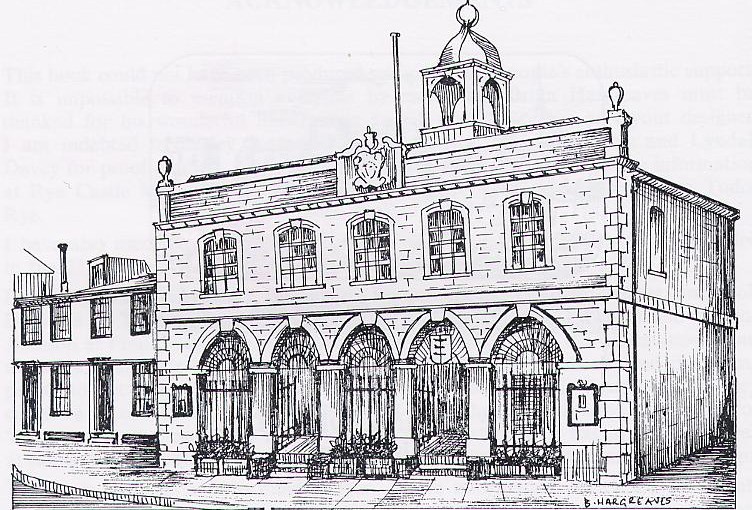Special Expenses Bexhill 2.04p. Rye 7.4p.
When local government was reorganised in 1976 and Rye lost its Borough status, it became technically a parish within Rother District, on the same basis as most of the villages. Though we were able to keep our Town Council and Mayor, the town’s administration was done from then on by Rather, Until 1976, Rye Borough had been responsible for maintaining various areas within the town -sports grounds, gardens, the cemetery, the churchyard, the allotments, the ancient monuments and of course the Town Hall, When the new system came into force, the Town Council was offered the choice of maintaining these places itself on an increased parish rate, or handing them over to Rother and having the cost added as “special expenses to our Rother rate. The Council members, smarting slightly from their demotion, reckoned that it would be more economic to hand over the work to Rather, who would already have labour and equipment, rather than try to go it alone. They decided, however, to keep the Town Hall in Rye’s care,
The arrangement then became that Rye, in common with all other parishes (including Bexhill), paid a standard rate to Rather (17p in the £ this year). In addition it paid a further rate for “special expenses”. Most parishes pay this, and for 1982/3 it ranges from nothing (East Guldeford) via 1.9p (Battle) and 2.04p (Bexhill) to an astonishing 7.4p for Rye. Of this, 2.8p is Rye’s “parish” expenditure on the Town Hall, including the Town Clerk and Town Sergeants salaries and very small Mayoral expenses (but not the recent redecoration, which was paid for out of Town Council savings and other funds). The rest goes to Rother for maintaining the public land, etc. This rate would be even higher but for a grant set against it by Rother — from a total of some £53,000 available for the whole district, Rye is credited with just over £19,000.
Bexhill has a different system. Instead of being charged for what the equivalent work (including the De La Warr Pavilion) costs, they pay a flat 2p rate each year, In addition, their Chartered Trustees (a sort of equivalent to our Town Council, because they are too big to count as a parish) has the use of Rother’s Bexhill Town Hall facilities for free, so their “parish” expenses are only 0.4p.
The new system worked quite well for the first couple of years, but then the Rye special expenses rate began to rise very sharply, from 2.7p in 1976/7 to the present 7.4p. Most Councillors seemed to accept this as inevitable, but when George Shackleton was elected as the Ratepayers Association candidate in 1979 he found the regular increases very worrying, particularly as Bexhill continued with its flat 2p rate.
George Shackleton Stands Up for Rye
Mr. Shackleton put Rye’s case at a Policy and Resources Committee meeting in February, and as a result of what was then said he had a long talk with Rother’s Treasurer, Mr. P.J,V, Allen, Mr. Allen agreed that the system seemed unfair, came over and talked with Rye Town Council, and eventually produced a report recommending that Rye should in future be charged a 2p rate for special expenses, on the same basis as Bexhill. (There would still be a parish rate for Town Hall expenses – but, as Mr. Shackleton points out, if our Council starts to throw our money about we can make our objections clear when election time comes round.

The Treasurer’s report was accepted by the Policy and Resources Committee at the end of October, It now goes before the full Council, where it will obviously be vulnerable to opposition from the villages, most of whom do their own playing field maintenance and have no ancient monuments to worry about, However, Rye is the main tourist attraction in the Rather District (we do not propose to argue this point with Battle), and the whole district benefits from the fact that Rye is what it is and has been. It seems only fair that the burden of keeping in sparkling condition this jewel in Rather’s crown should be spread more evenly throughout the Rother District.
Report by Mary Owen from the “Rye’s Own” Archive. 10 November 1982
